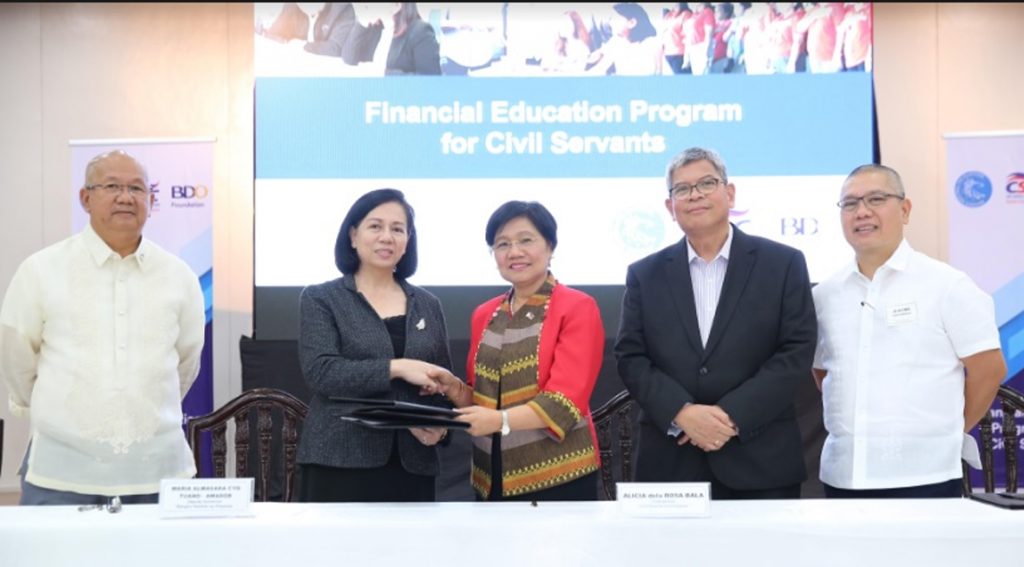SINELYUHAN ng Bangko Sentral ng Pilipinas (BSP), Civil Service Commission (CSC) at ng BDO Foundation (BDOF) ang tripartite partnership upang ipatupad ang Financial Education Program for Civil Servants.
Sa isang seremonya sa tanggapan ng CSC, nilagdaan nina BSP Deputy Governor Maria Almasara Cyd Tuaño-Amador, kina-tawan ni BSP Governor Benjamin E. Diokno; CSC Chairperson Alicia Dela Rosa-Bala at BDOF President Mario A. Deriquito ang isang Memorandum of Agreement (MOA) para sa shared commitment upang mapalakas ang financial literacy ng lahat ng pub-lic servants.
“Phase 1 of the Program aims to pilot fined sessions and learning resources co-developed by BSP and BDOF, specifically dur-ing on-boarding orientations of new employees, in service leadership courses, pre-retirement sessions for retiring employees, and other relevant training programs being conducted by CSC for its more than 1,000 personnel around the country. Phase 2 aims to embed fined sessions in regular training programs for civil servants across all government instrumentalities, explore inclusion of financial literacy measurement in civil service eligibility assessments and performance evaluation systems, as well as deploy practical mechanisms to assess Program effectiveness and impact.”
Sinabi ni BSP Governor Diokno na, “The Financial Education Program for Civil Servants is a concrete example of a productive collaboration between public and private sector institutions like the BSP, CSC and BDO Foundation. We share the conviction that a financially-literate bureaucracy able to make prudent financial decisions in their personal lives can be better public servants, and contribute mare meaningfully to nation-building.”
Nangangailangan pa ng multi-sectoral collaborations sa financial education. Lumitaw sa survey na ang mga adult ay nakasagot lamang ng tatlong tama sa pitong financial literacy questions. Karamihan sa mga Filipino ay hindi nauunawaan ang compounding interest rates, risk-return and investment diversification, impact ng inflation sa purchasing power ng households, at comparing bar-gains.
“Evidently, even if financial concepts are taught in schools, they are not properly understood within the context of managing money and using financial services. The average Filipino, including govern-ment workers, thus face greater risk of making decisions that compromise their financial health – such as delaying saving, mismanaging credit, bypassing legitimate investment opportunities, or worse, falling into investment scams.”

